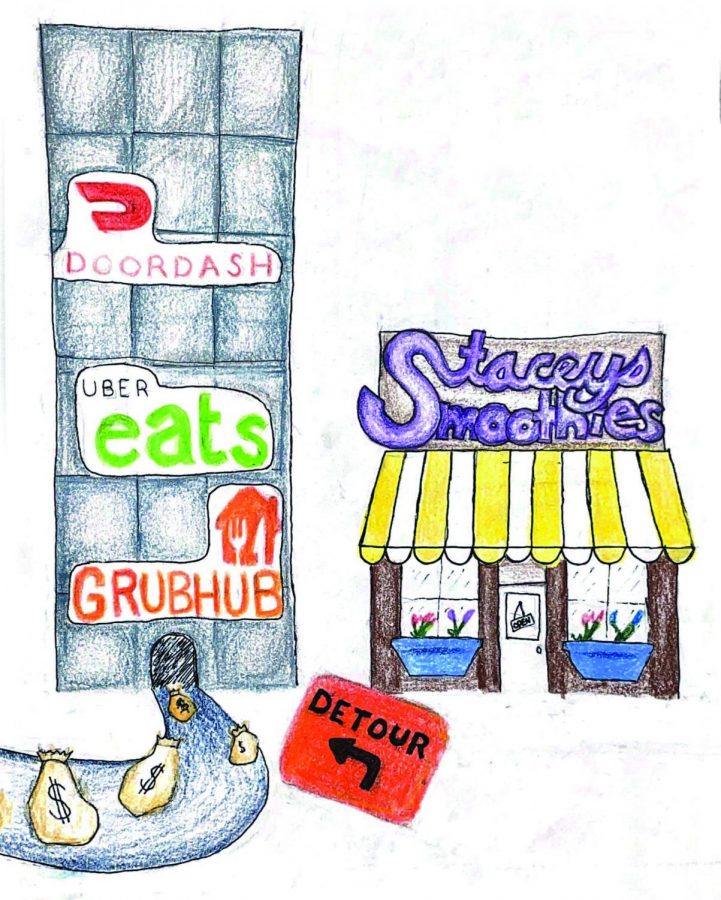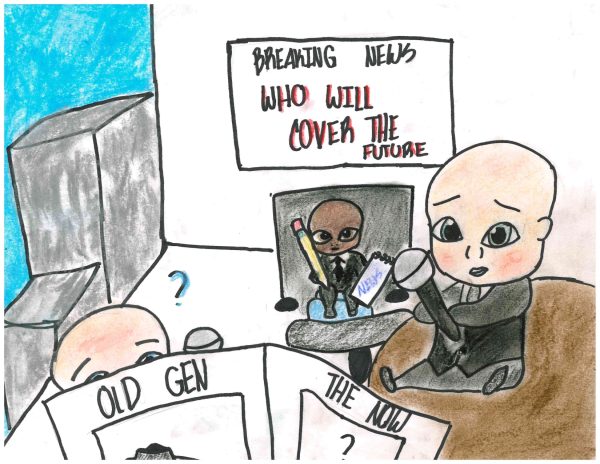Doordash steals money from small businesses
By using food delivery services to get coffee, lunch or dinner, many consumers are unintentionally taking money from small business. Consumers do not realize the small fees businesses receive from providing these services that ultimatley harm their profit/revenue.
In order to avoid leaving the house, many consumers utilize delivery services like DoorDash, Grubhub and UberEats.
These services come with a cost to both the customer and restaurant.
While using these apps and services can be convenient to the customers, many small businesses struggle to implement them because of the ridiculously high cost to them and their revenue.
Oftentimes the owners of small businesses only use these services because of high customer requests and the pressure that their competition is using delivery services.
Before the COVID-19 pandemic, these services would take at least 30% of the total order cost from the restaurant.
The New York Post reported that in April 2020, DoorDash sought to aid restaurants.
“The new commissions will allow restaurants to choose to pay as little as 6% of an order, rising to 15%, 25% and 30%, depending on their needs,” New York Post reporter Lisa Fickenscher said.
According to Fickenscher, for many restaurants, using DoorDash was more costly than beneficial.
“Previously, restaurants were forced to negotiate their fees, which led to many smaller restaurants forking over 30% of every food order to a tech giant simply because customers chose to order their food via a website or app instead of calling the restaurant directly.”
Many have gotten used to the convenience of delivery throughout the pandemic, but as the habit sticks, it makes it more and more difficult for restaurants to get fully back on their feet.
Some states and cities such as Los Angeles, New York, San Francisco and Oregan put temporary caps on the percentage that these apps could take from restaurants until the pandemic was over
Even then, 62% of San Francisco restaurants said they were still losing money from utilizing these “services.”
What’s even more infuriating is that Grubhub, Uber Eats and DoorDash proclaimed that their services are what is “Saving Restaurants” throughout the pandemic.
Grubhub released an ad in March 2020 stating, “Grubhub believes that together, we can help save the restaurants we love.”
We do love so many local restaurants, but if we really want to save them, we need to suck it up and call the business directly to place an order.
Once restaurants began to reopen though, many of the companies still charged their high fees, taking from small restaurants in a still incredibly vulnerable time.
According to Cornell professor Karan Girotra, this type of delivery is only profitable in dense neighborhoods and towns, where multiple orders can be delivered quickly and cheaply.
But in suburbs where the landscape is further spread out, it becomes nearly impossible for the restaurants to make any sustainable profit off of these orders.
According to statements released by DoorDash, they are primarily focused on using their services with big chain restaurants, not small independent restaurants.
Still, the popularity and pressure to make pickup and delivery easier for the customer leaves many owners and managers feeling as if these services are a necessity.
The premise of what these services want to do is good in theory, and if it had been executed properly, they probably may have been able to help more restaurants than they harmed throughout the pandemic.
There is more trial and error that needs to happen before these apps can bring in sustainable profit for all businesses.
But, in the meantime, we consumers need to suck it up, talk to workers and pick up our food ourselves.






